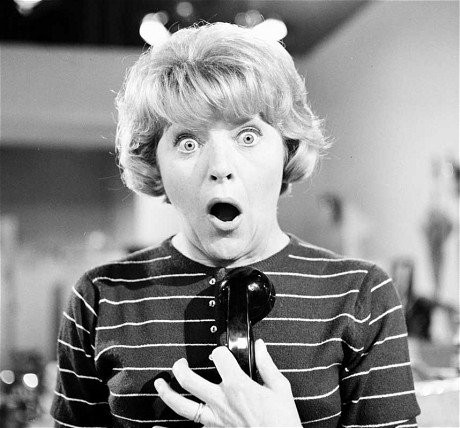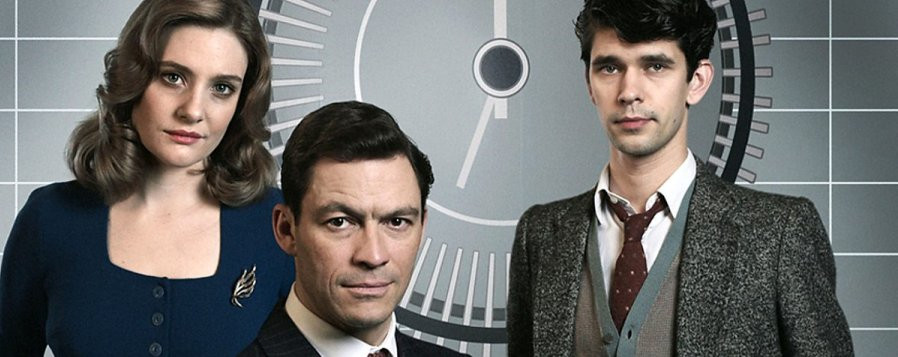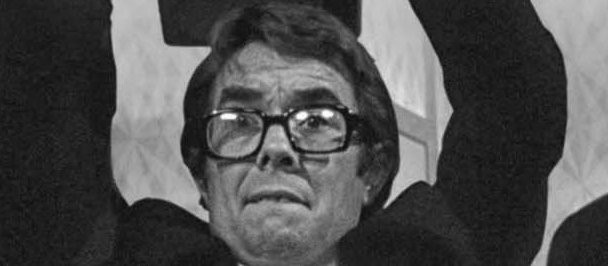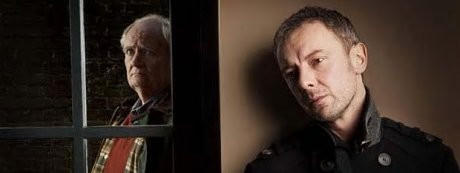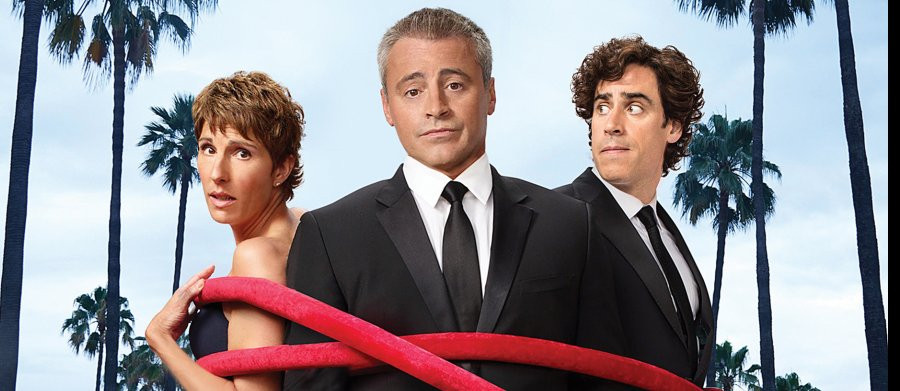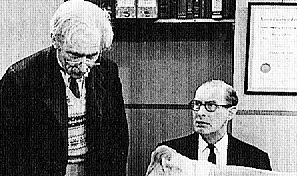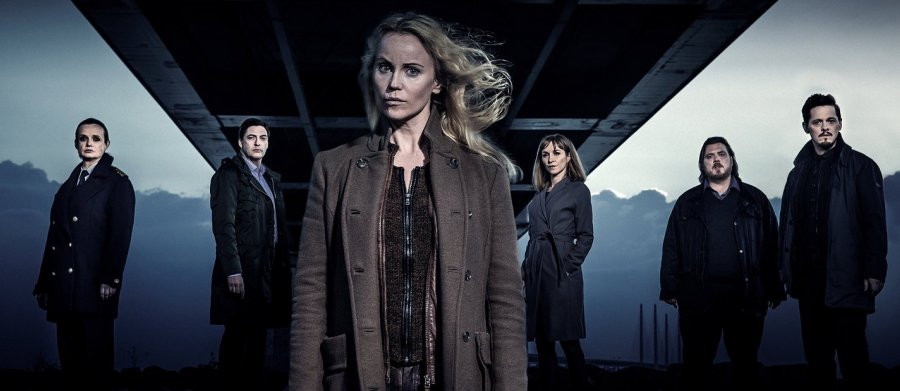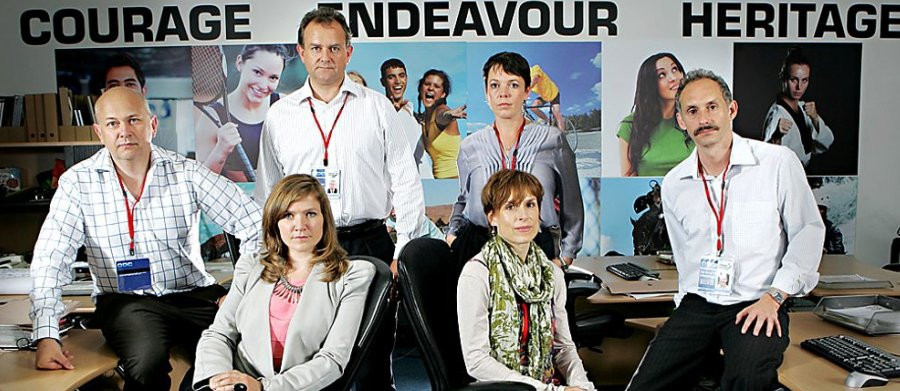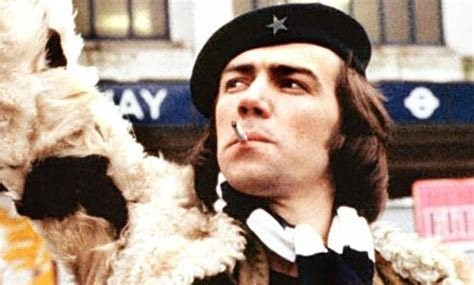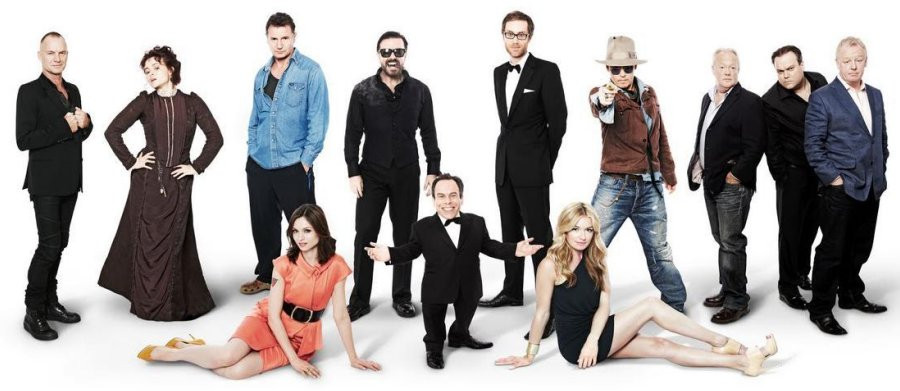
Life's Too Short
2011 - United KingdomReview: John Winterson Richards
Apart from the obvious difference in height, it could be argued that Warwick Davis is the natural successor to Sir Christopher Lee. He has built up such an impressive curriculum vitae, including so many major films and franchises, that he is a critical nexus point in any game of "Kevin Bacon," in which players try to connect "celebrities" in the fewest number of links. He has been a regular in the 'Harry Potter' and 'Star Wars' films, and had the title role in 'Willow,' which tends to be remembered with great affection by those who were just the right age, not too young or too old, when it came out in 1988.
It is only to be expected that he has a great fund of stories from his career and apparently he knows how to tell them. He seems to have really hit it off with Ricky Gervais when he guest starred in an episode of Extras - one of a number of established names only too eager to work with Gervais in the wake of the phenomenal success of The Office.
Even so, he seemed a strange choice for both the leading role and the subject matter of Gervais' next big television project, his third, after 'Extras' and 'The Office.' Apart from anything else, Gervais himself had played the lead in the other two, and, although he also played a part in the new one, it was rather disconcerting to his fans to see him in a supporting role.
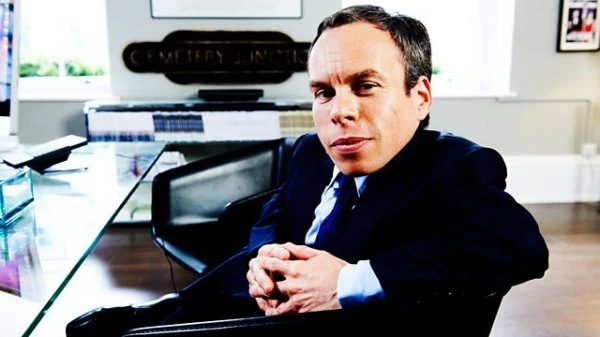
In 'Life's Too Short Davis plays a highly fictionalised version of himself, of the type played by Matt LeBlanc in Episodes, which came out around the same time, and slightly later by James Van Der Beek in Don't Trust the B---- in Apartment 23. In 2011, it was still more of an innovation and therefore more of a risk.
Davis appears on the available evidence to be a very pleasant man in real life - your reviewer has not met him personally, but the likes of George Lucas would not keep inviting him back for franchise work if he was not an easy presence on the set. He has been happily married for many years and has children. His wide ranging charitable and business interests include a talent agency for actors under five foot and over seven foot tall. One might in any case conclude - if one has that unhealthy obsession with celebrity earning which most of the rest of us do - that the residuals from his major franchise work should ensure that he is not short of a penny. The real Warwick Davis is therefore the epitome of a successful, well-adjusted middle-aged man.
However admirable this may be in fact, it makes for poor television. So the trick with these fictionalised versions of real celebrities played by themselves is to make them as grotesque as possible without losing touch with the semblance of "reality" that makes them interesting in the first place. So the respected actor, entrepreneur, and family man Warwick Davis is given a personality transplant, together with a collapsing marriage and financial problems.
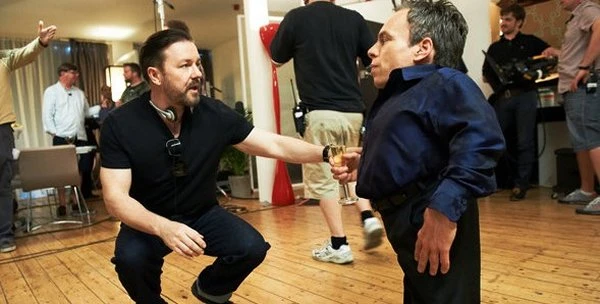
These are, as is often the case, not unconnected. The fictional Warwick Davis is portrayed as selfish and arrogant: in the words of real life Warwick Davis - so we can say it - he has "short man syndrome." His height, or lack thereof, makes him chippy and defensive. When this leads to domestic and financial difficulties - which, as usual, become a vicious circle as each aggravates the other - rather than try to address them, he tries to put up a front and fails miserably. The likeable success story in real life becomes a disagreeable loser on screen.
It is to the credit of Davis as an actor that he accomplishes this convincingly - perhaps too convincingly. The flaw with the project from the start was that he was so successful at transforming into an unflattering caricature that he left little room for audience sympathy. Why should we care about this character, and if we do not care about him, why should we invest our time with him?
Of course, Davis only does what the script demanded, and does it well. Even as the negative version of himself he retains a certain charm. His relentless optimism in the face of constant humiliation is a definite redeeming feature, and some of the humiliations themselves evoke our pity. One has to admire his professional straight face as he is dehumanised by Helena Bonham Carter when acting as a "stand in" for a child actor or tries to give an interview to a bottom level television reporter who has no idea who he is. One wonders how much of this is based on what he and similar actors have had to endure in the course of their careers.
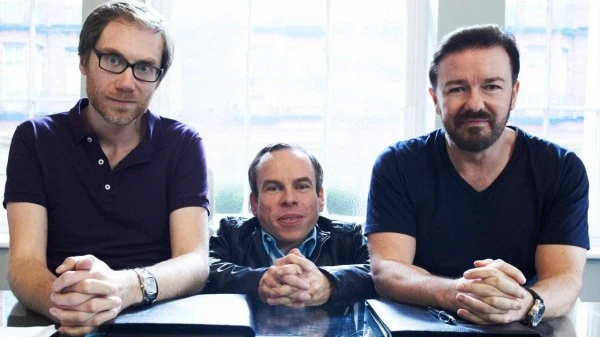
However, this does nothing to make the show more attractive to viewers. They might be prepared to stick with an unsympathetic protagonist or a protagonist who is bullied constantly, but offering both at the same time rather confused them and asked too much of their tolerance for unpleasantness. Many were disappointed, expecting something more like 'Extras.' The series opened to reasonably good ratings, but they dropped by a third after the first episode and half of those who remained gave up by the fifth episode. Plans for a second season were dropped quietly. It was announced that the series would be wrapped up with a double length special episode, but no one seems to have been in much of a hurry to make it.
Gervais put the time to good use. Learning from his mistakes, he changed the whole tone of the project. He had the Warwick Davis character learn - in turn - from his own mistakes. So when the special episode finally turned up, we saw a slightly kinder, gentler "Warwick." Partly as a result, he was granted a little hope in the end. For all his professed atheism, Gervais seems to enjoy using his power as a "creator" - of a television universe - to grant absolution.
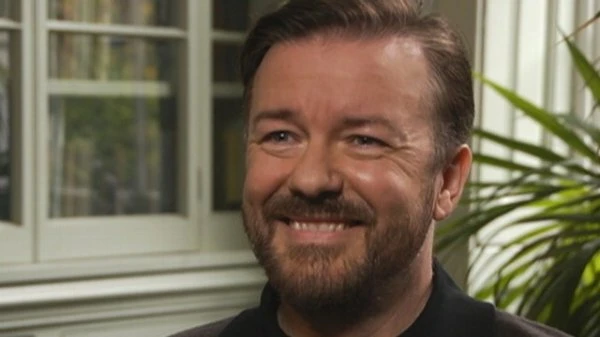
These changes made all the difference. The special episode was a delight, and got at least some of the audience back. It was, in its last hour, the show it should have been from the start.
This is not to say that the regular season of seven episodes that came before was entirely without merit. On the contrary, it is worth watching it twice: watch it first to put the special episode in its context and then, having watched the special episode and knowing things get better, watch the whole thing again just to appreciate some great comedy moments.
Most of these come from Davis himself, especially in his reactions - both to things that happen to him, and to some of the bizarre things he sees and hears. While "Warwick Davis" the character takes time to develop, Warwick Davis the actor puts in a great performance throughout.
There are also some great scenes with guest stars. By far the best - and the most bizarre of those bizarre things Warwick witnesses - is the one in which Liam Neeson takes it into his head to become a comedian. If the words "Liam Neeson" and "Comedy" do not occur naturally together in the mind that is precisely the point. What follows is - ironically - a masterpiece of comic timing from Neeson playing himself as a man with no sense of comic timing.
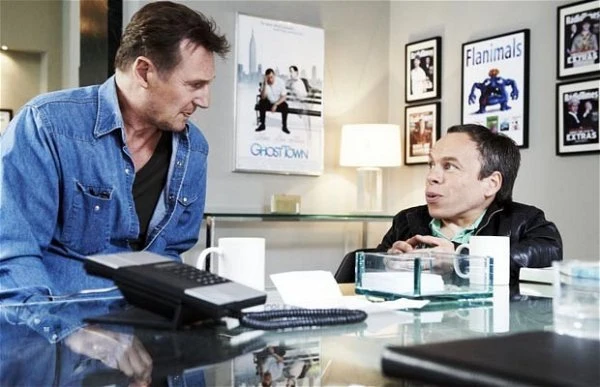
As was the case in 'Extras,' there is a variation in the quality of the guest roles, and a definite correlation between entertainment value and the guests' willingness to trash their own images. Indeed, three of the guest stars who were the bravest in 'Extras,' because of their openness to being mocked for the hard fact that their careers were not as successful as they once were - Les Dennis, the late Keith Chegwin, and Shaun Williamson - make a very welcome return and end up forming a great triple act. It is, however, a little confusing to see Williamson, playing basically the same role he played in 'Extras' interacting with Gervais and Stephen Merchant playing themselves in 'Life's Too Short' when he interacted with them as two completely different characters in 'Extras.'
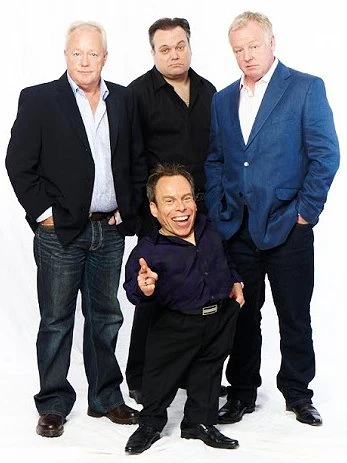
One of the things that might have disappointed Gervais fans is that he does relatively little on screen in 'Life's Too Short.' He basically sits in an office with Merchant talking to Warwick and the guest stars. Professionally, this was a polite gesture, to put the emphasis on Warwick as the leading man, but it may not be what his admirers expected from him.
However, if Gervais the Actor seems unusually passive, Gervais the Writer proves, once again, the Master of Cringe Comedy. To be honest, this is an acquired taste. Some dislike it completely, while others, who respect him for pushing the boundaries, still feel sometimes that he crosses the line too often. At his best, his willingness to take social embarrassment to excruciating new levels can be hilarious - as in the Liam Neeson scene - but, if it is taken too far, it can become almost unbearable to watch. It is fair to say that 'Life's Too Short' has examples of both.
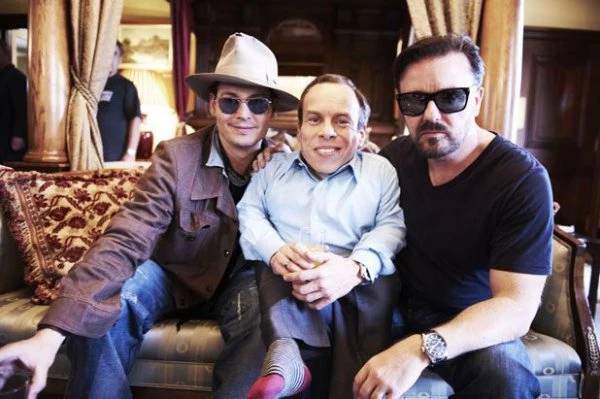
Gervais has built his career on his willingness to take risks. If taking risks means anything, it must mean an increased possibility of failure - which must mean actual failures from time to time and there is no denying that Gervais has had some. 'Life's Too Short' was written off very quickly as one of them even by some critics who were well disposed towards him. There was perhaps a feeling around the time - a sadly typical British feeling - that, after two series that had been generally seen as hits, he was due a miss.
If so, it deserves to be reassessed. Although it took a long time to get its tone right - not that seven episodes used to be considered a long time in British "situation comedy" - it came gloriously good in the end, and along the way it provided a showcase for some fine performances, above all from its star, and delivered some of the funniest moments in Gervais' career to date.
John Winterson Richards
John Winterson Richards is the author of the 'Xenophobe's Guide to the Welsh' and the 'Bluffer's Guide to Small Business,' both of which have been reprinted more than twenty times in English and translated into several other languages. He was editor of the latest Bluffer's Guide to Management and, as a freelance writer, has had over 500 commissioned articles published.
He is also the author of ‘How to Build Your Own Pyramid: A Practical Guide to Organisational Structures' and co-author of 'The Context of Christ: the History and Politics of Rome and Judea, 100 BC - 33 AD,' as well as the author of several novels under the name Charles Cromwell, all of which can be downloaded from Amazon. John has also written over 90 reviews for Television Heaven.
John's Website can be found at John Winterson Richards
Books by John Winterson Richards:
Published on July 16th, 2020. Written by John Winterson Richards for Television Heaven.


